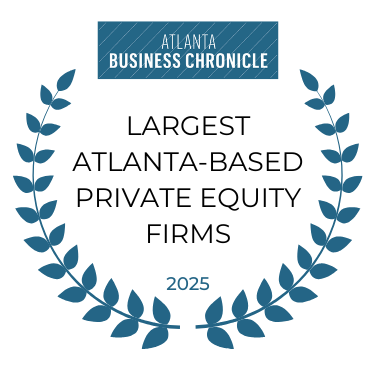Business Owner Resources
We’re committed to providing business owners with the best private equity experience possible. Part of that commitment is assisting founders in equipping themself with the proper tools to enter the selling process informed and prepared.
Founder Options
The choices that shape your selling
experience.

Additional Resources
PARTNERSHIP VIDEO
Watch how these values came to life with our investment in Sailfish Boats.
Selecting the Right Equity Investment Partner

Choosing the right equity partner, whether for a majority buyout or a minority growth investment, is a major decision that will impact not only the future of your company, but also your own personal financial objectives.
It’s important to consider the following points to navigate a smooth transition that will set you and your business up to succeed.
1. Alignment of Interests
You’ve worked tirelessly to get your business to this point. You’ve invested time, energy, money and emotion. The best partners will make it a priority to understand what the business means to you personally and ensure they are aligned with your vision for the future before signing on. They should also be people you respect, trust, and want to spend a significant amount of time around.
Questions to consider: Do I like the people with whom I will potentially be working? Do their goals for the business line up with mine? Are these partners a good fit for the culture I have created at my company?
2. Due Diligence for All
You can expect that any partner investing significant resources into your company will conduct an intensive due diligence process before a transaction is completed. (Read more on what to expect during due diligence here and see a sample request list here.) That said, diligence is a two-way street. Make a concerted effort to learn vital information about your potential partners. They should be more than willing to accommodate reasonable requests to authenticate their track record.
Questions to consider: Ask to speak to a few of their current partners to get a feel for how they work and who they are. You might ask them the following: What is it like working with these partners? How well and how often do they communicate with you? How are decisions made? What happens if there is a strategy disagreement? What kind of growth results have you seen working with their team?
3. Value-Add Beyond Capital
Future growth is not just about the financial capital being injected into the business. A truly value-additive partner will be able to help you tackle issues your company is facing. Make sure the potential partner has the needed experience, network in your geographic area and business chops to help create value. Getting to know the capabilities of the team they bring to the table will help you assess if they can truly help move the needle.
Questions to consider: What are the qualifications of the team? What experience do they have in the areas where your business needs additional bandwidth? How often will they be onsite working alongside your team? How hands-on (or off) do they plan to be in the operations of the business?
4. Impact of Investment Horizon
Traditional/institutional investment firms will have a specific time frame they must follow on behalf of their underlying investors. Have a conversation about how long they want to be involved and what options they would consider for exiting their investment. Additionally, it is imperative to understand how this time frame will impact the strategies they use to realize returns for investors. All too often, institutional investors will use “financial engineering” tactics to achieve their version of “growth”. This is done to realize returns over a specified timeframe, but it does not focus on what is more important: long-term, sustainable value creation. (You can learn more about how Georgia Oak’s approach on this topic differs from other firms here.)
Questions to consider: What time requirements are in place from underlying investors? What is the exit plan? What is the plan for topline growth? Which areas of the business do they see as short-term cost saving opportunities, and how will implementing those plans impact the long-term viability of the company beyond their exit?
The process of selecting a partner can help you more deeply understand your own vision for the future and hopes for the company you have built. Knowing the answers to these questions should provide a sense of confidence that you are choosing the best partner for your personal and business goals.
Learn more about Georgia Oak’s unique approach to partnerships here or email us to begin a confidential conversation.
At Georgia Oak, we’re committed to enhancing your business and helping founders grow their legacies
to their fullest potential. If you find we’re a good fit for your next step, please reach out to us.




